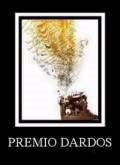All Christians agree that we won’t be sinning in heaven. Sin and finalThe Catholic understanding of Purgatory is explained in the Catechism of the Catholic Church (CCC), paragraphs 1030-31:
glorification are utterly incompatible. Therefore, between the sinfulness of
this life and the glories of heaven, we must be made pure. Between death and
glory there is a purification.
"All who die in God's grace and friendship, but still imperfectly purified, are indeed assured of their eternal salvation; but after death they undergo purification, so as to achieve the holiness necessary to enter the joy of heaven. The Church gives the name purgatory to this final purification of the elect, which is entirely different from the punishment of the damned."
The doctrine of Purgatory is connected to the Catholic teaching of two kinds of sin: mortal and venial. All sin is wrong, evil, weakening, and dehabilitating. But few of us would say that a five-year-old sneaking a cookie is equally wrong with an adult stealing a car. The first would be a venial (or "lesser") sin; the second, mortal (or "deadly"). Anyone who is familiar with Latin or Spanish recognizes "morte" — the word for death — at the root of "mortal". This concept of deadly and non-deadly sin comes right from 1 John 5:16-17:
"If anyone sees his brother commit sin that does not lead to death, he should pray and God will give him life. I refer to those whose sin does not lead to death. There is a sin that leads to death. I am not saying that he should pray about that. All wrongdoing is sin, and there is sin that does not lead to death."
St. John says clearly that there is sin that leads to death, and that there is sin that doesn't. But he makes sure to clarify that all wrongdoing is still sin. Just because the five-year-old's disobedience in sneaking the cookie isn't as major as hotwiring and stealing a car doesn't mean it's not wrong. He is still guilty, but with a lesser guilt than the other. Likewise, the punishment is proportional — probably a few minutes in the time-out chair versus a few years in jail.
Mortal, or deadly, sin does just what the name implies: kills the life of God (grace) in one's soul. Catholics believe that for one to die with the guilt of unrepented deadly sin makes it impossible for them to go to Heaven (this is where Confession comes in...but that will be addressed later in the series!). A soul who dies in this state has forfeited Heaven.
Venial sin, because of its lesser severity, does not kill the life of God in a soul, but weakens and undermines it. We all commit venial sins every day. These venial sins "clutter up" our souls with impurity. One who dies with venial (not mortal) sin on their soul is said to be in a state of grace. They are assured of salvation, but are not yet ready to enter Heaven: Revelation 21:27 states that nothing and no one unclean can enter the presence of God in heaven. All traces of venial sin must be purified from a soul before this can happen. This purification is what takes place in Purgatory.
Some imagine that the Catholic Church has an elaborate doctrine of purgatory worked out, but there are only three essential components of the doctrine: (1) that a purification after death exists, (2) that it involves some kind of pain, and (3) that the purification can be assisted by the prayers and offerings by the living to God.
Many early Church Fathers wrote on this subject, for example, St. Augustine in A.D. 392:
"Let us help and commemorate them. If Job’s sons were purified by their father’s sacrifice [Job 1:5], why would we doubt that our offerings for the dead bring them some consolation? Let us not hesitate to help those who have died and to offer our prayers for them" (Homilies on First Corinthians 41:5)
The doctrine of Purgatory is a rich and beautiful one. Not only that, it is a merciful one. I have only begun to offer an explanation here... let me point you to some excellent reading that goes into this deeper!
- Purgatory from CatholicAnswers.com debunks some Purgatory myths and explains why it is not a Catholic "invention" .
- The Roots of Purgatory contains a number of intriguing quotes from the writing of early Church Fathers recognized and appreciated by Catholics and Evangelicals alike.
- Purgatory at OurCatholicFaith.com makes more connections with scripture and Church Fathers.
- Why Mortal and Venial Sins? is a former evangelical's take on the subject.










